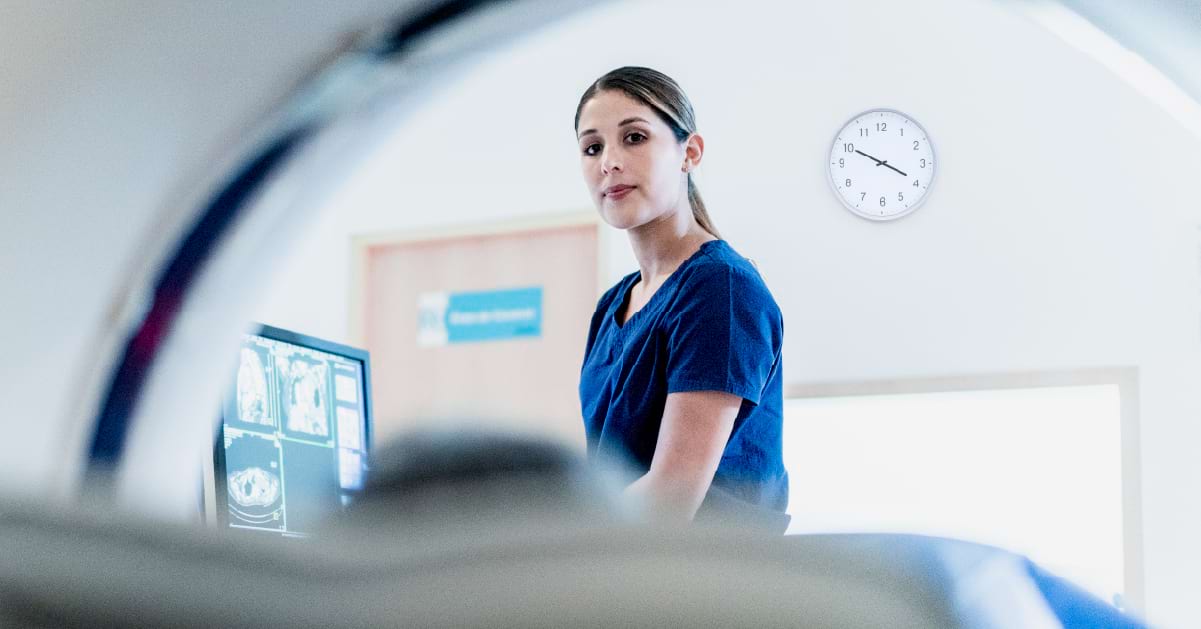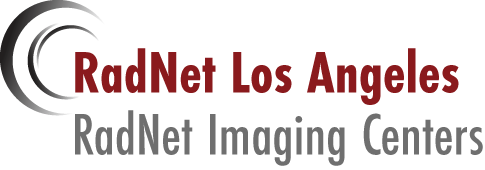How Long Does a CT Scan Take?

How Long Does a CT Scan Take?
What to Expect During Your Scan and Other Helpful Facts
CT scans are a widely used imaging technique performed on millions of patients each year. This powerful and versatile technology can detect abnormalities in nearly any part of the body. But, how long does a CT scan take?
Typically, a CT scan lasts between 10 to 30 minutes. This timeframe includes preparation, positioning, and the scan itself — which is often very quick, sometimes taking just a few seconds to a few minutes.
At RadNet, we’re committed to providing clear, helpful information so patients can make informed decisions about their health. Understanding what a CT scan is, what it can detect, and how long it takes is an important step in managing your care with confidence.
Keep reading for more helpful information on CT scans!
What is a CT Scan?
CT, or computed tomography scans, have become a crucial tool in modern medical diagnostics. They merge X-ray technology with advanced computer processing to produce detailed images of the body's internal structures, assisting radiologists in diagnosing and managing a wide range of health conditions.
Whether it's detecting tumors or assessing internal injuries, CT scans are invaluable, especially in emergencies where quick decision-making is crucial.
Adaptable to all regions of the body, CT scans can be conducted with or without contrast dye. Contrast dye may be used to view blood vessels and certain tissues more clearly. Compared to MRI, CT scans provide better evaluation of certain elements such as air, blood and calcifications. This means that air-containing structures, such as the lungs, are better studied using CT.
Why Should I get a CT Scan?
Wondering when a CT scan might be necessary? Persistent pain, unexplained swelling, or injuries may prompt a doctor to recommend a CT scan to gain a clearer understanding of the problem. Symptoms like unexplained weight loss or changes in bladder habits could also lead to a CT scan. These scans are particularly effective in diagnosing issues with internal organs, soft tissues, bones, and blood vessels.
Consultation with a healthcare professional is essential to determine if a CT scan is appropriate for you.
At RadNet, we offer the most advanced CT imaging services, often combined with artificial intelligence technology, to provide you with the answers you need. Some of our advanced CT services include specialized imaging procedures such as:
- Cardiac CT: Through our innovative suite of CT imaging procedures, we can accurately assess risk of heart disease, as well as presence of and extent of plaque build-up in the arteries, narrowing of coronary arteries, and how well blood is flowing to the heart, among other vital analyses – without the burden of invasive or risky surgical procedures. These non-invasive CT procedures include:
- CT Coronary Calcium Scoring
- Coronary CTA (CCTA)·
- CCTA with AI Plaque Analysis
- CCTA with FFR-CT
- Low-Dose Lung CT (LDCT): This high-quality screening exam, administered with the lowest possible radiation dose, is used to find lung cancer before it is symptomatic and before it has spread. Using state-of-the-art technology combined with artificial intelligence software, LDCT is covered by most insurance plans for people considered high-risk (eligibility is based on personal smoking history. To see if you are eligible, speak with your healthcare provider.)
What Should I Expect During My CT Scan Procedure?
Preparing for a CT scan? Before the procedure, you might need to follow some preparation steps for a seamless experience. Inform your healthcare provider about any medications and allergies, particularly to contrast materials. Depending on the type of CT scan, you might need to refrain from eating or drinking for a few hours beforehand.
During the CT scan, you'll lie on a comfortable table that moves into a large, donut-shaped machine. The scan is generally quick, taking less than 30 minutes, although the full appointment may be longer due to preparation and follow-up processes. It's important to remain still during the scan to ensure clear images. Unlike an MRI, a CT scanner is an open machine – you are not enclosed and can see completely around yourself.
At RadNet, your comfort and safety are our top priorities. Your technologist will be there to guide and support you throughout the procedure. Protective measures, such as lead aprons, may be used to shield areas not being scanned. Our focus is on providing a safe and comfortable CT scan experience.
When Will I Get My CT Scan Results and What are the Next Steps?
How long does it take to get CT scan results? At RadNet, our radiologists strive to provide results within 24 to 48 hours. Sometimes, a more detailed analysis may take longer. Once your results are ready, they'll be sent to your referring provider, who will discuss them with you during a follow-up appointment.
The radiologist’s report will also be available on our patient portal. We encourage all patients to utilize the patient portal to keep track of information relating to their exams and results. The portal can also be used to schedule future visits with the referral of a medical professional.
Interpreting CT scan results can be complex, so it's crucial to ask your doctor to explain your results clearly. Understanding what the results mean for your health is vital, and your doctor will outline recommended actions. RadNet is committed to delivering clear and comprehensive care, ensuring you feel informed and supported throughout your healthcare journey.

